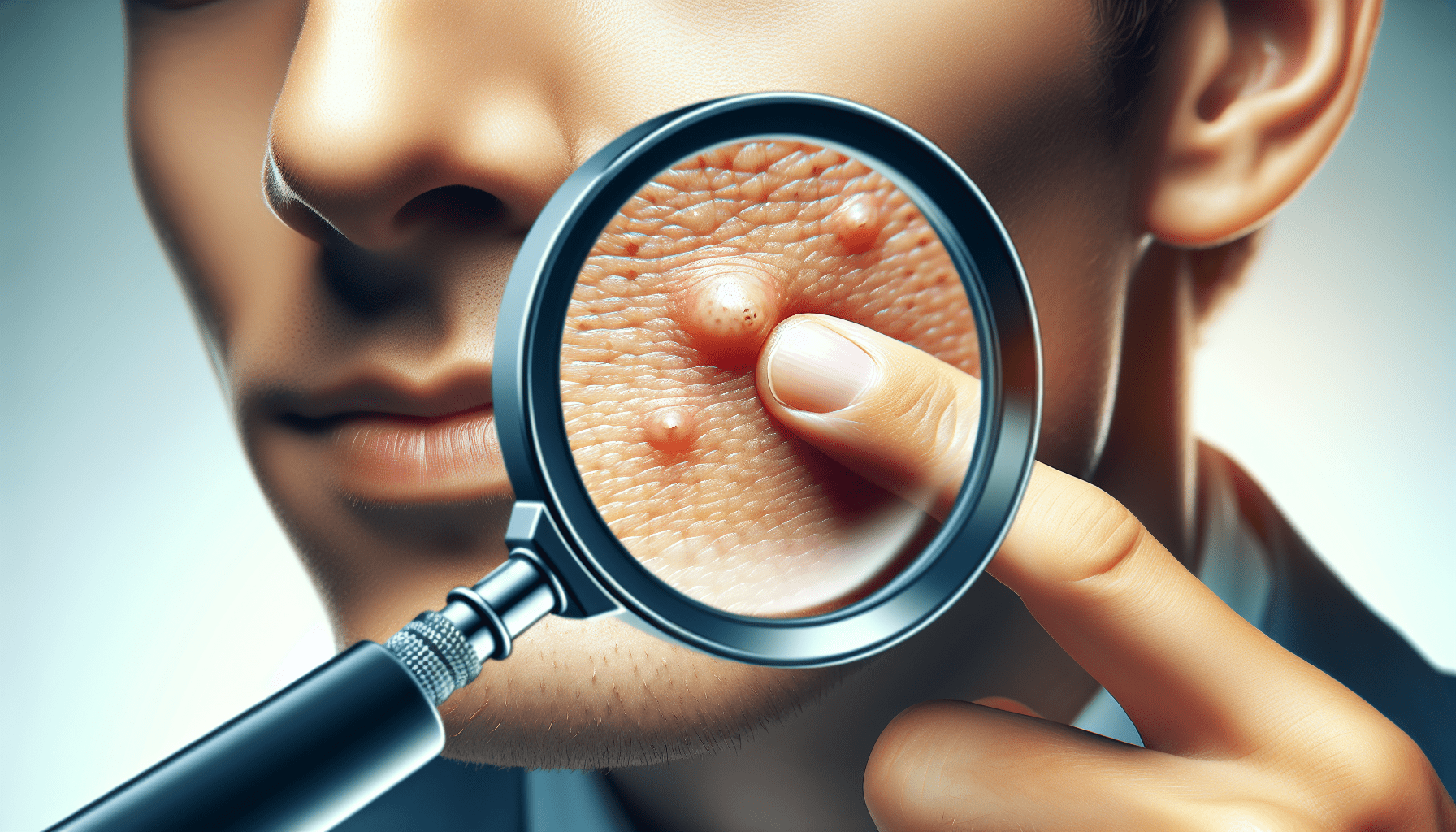Welcome to a guide on how to stop a pimple from continuing to form. Dealing with pimples can be frustrating, but by taking the right steps and incorporating some simple habits into your skincare routine, you can prevent new breakouts from happening. From maintaining a consistent skincare routine to avoiding certain triggers, we will explore effective methods to keep your skin clear and healthy. So, let’s dive in and learn how to stop those pesky pimples in their tracks.
How Do You Stop A Pimple From Continuing To Form?
Have you ever found yourself dealing with persistent breakouts and wondering how to prevent a pimple from forming in the first place? You’re not alone! In this article, we will explore various tips and tricks to help you stop a pimple from continuing to form.
Understanding the Causes of Pimples
It’s crucial to understand the underlying causes of pimples before you can effectively prevent them from forming. Pimples, also known as acne, develop when hair follicles on the skin become clogged with oil and dead skin cells. Bacteria can also play a role in pimple formation. Factors such as hormonal changes, genetics, and certain medications can all contribute to the development of pimples.
Proper Skincare Routine
Having a consistent skincare routine is essential for preventing pimples. Cleansing your face twice daily with a gentle cleanser can help remove excess oil, dirt, and dead skin cells that can clog pores. It’s important to choose products that are non-comedogenic, meaning they won’t clog your pores.
Morning Routine
Start your day by washing your face with a gentle cleanser to remove any oil buildup overnight. Follow up with a lightweight, oil-free moisturizer to keep your skin hydrated without clogging pores.
Evening Routine
Before bedtime, remove any makeup, sunscreen, or dirt accumulated throughout the day with a gentle cleanser. Apply a targeted treatment or spot treatment to any existing pimples or problem areas. Finish with a hydrating night cream to nourish your skin while you sleep.
Diet and Lifestyle Changes
What you consume and how you live your life can have a significant impact on your skin health. Making certain dietary and lifestyle changes can help prevent pimples from forming.
Hydration
Staying hydrated is crucial for maintaining healthy skin. Drinking an adequate amount of water can help flush out toxins, keeping your skin clear and hydrated.
Healthy Diet
Eating a balanced diet rich in fruits, vegetables, whole grains, and lean proteins can help support clear skin. Avoiding excessive consumption of sugary, greasy, and processed foods can also contribute to preventing pimples.
Stress Management
Stress can trigger breakouts, so finding healthy ways to manage stress is essential for preventing pimples. Engage in activities such as exercise, meditation, yoga, or hobbies to reduce stress levels and support clear skin.
Proper Extraction Techniques
If you have a stubborn pimple that won’t go away, you may be tempted to pop it. However, improper extraction techniques can lead to further inflammation, scarring, and the spread of bacteria. It’s essential to know how to properly extract a pimple to prevent it from forming.
Steps for Proper Extraction
- Cleanse your hands and the affected area with a gentle cleanser.
- Apply a warm compress to the pimple to help soften the skin and open the pore.
- Gently press down on the sides of the pimple with clean fingers or a cotton swab.
- If the pimple doesn’t easily extract, stop and consult a dermatologist to avoid causing damage to your skin.
Use of Topical Treatments
Topical treatments can be effective in preventing pimples from forming and treating existing ones. Choose products with active ingredients such as benzoyl peroxide, salicylic acid, retinoids, or sulfur to target pimples and reduce inflammation.
Spot Treatments
Spot treatments are specifically formulated to target individual pimples. Apply a small amount of spot treatment directly onto the pimple to reduce inflammation and help it heal faster. Be cautious not to over-apply, as this can lead to dryness and irritation.
Retinoids
Retinoids are derived from vitamin A and are known for their ability to unclog pores and promote skin cell turnover. Incorporating a retinoid product into your skincare routine can help prevent pimples from forming and improve overall skin texture.
Importance of Proper Sun Protection
Exposure to harmful UV rays can exacerbate acne and lead to further inflammation and discoloration. Using sunscreen daily is crucial for protecting your skin and preventing pimples from forming.
Choose a Non-Comedogenic Sunscreen
When selecting a sunscreen, opt for a non-comedogenic formula that won’t clog your pores. Look for products labeled “oil-free” or “non-comedogenic” to prevent sunscreen-induced breakouts.
SPF Application
Apply sunscreen generously to all exposed skin, including your face, neck, and ears. Reapply every two hours, especially if you’re sweating or swimming, to ensure adequate protection against UV damage.
Seeking Professional Help
If you’ve tried various preventative measures and treatments but continue to struggle with persistent pimples, it may be time to seek help from a dermatologist. A dermatologist can assess your skin condition, recommend personalized treatment options, and provide guidance on how to prevent pimples from forming in the future.
Conclusion
Preventing pimples from forming requires a combination of proper skincare, lifestyle changes, and targeted treatments. By understanding the causes of pimples, maintaining a consistent skincare routine, making dietary and lifestyle adjustments, using proper extraction techniques, incorporating topical treatments, prioritizing sun protection, and seeking professional help when needed, you can effectively stop pimples from continuing to form. Remember, clear and healthy skin is achievable with the right knowledge and practices.
